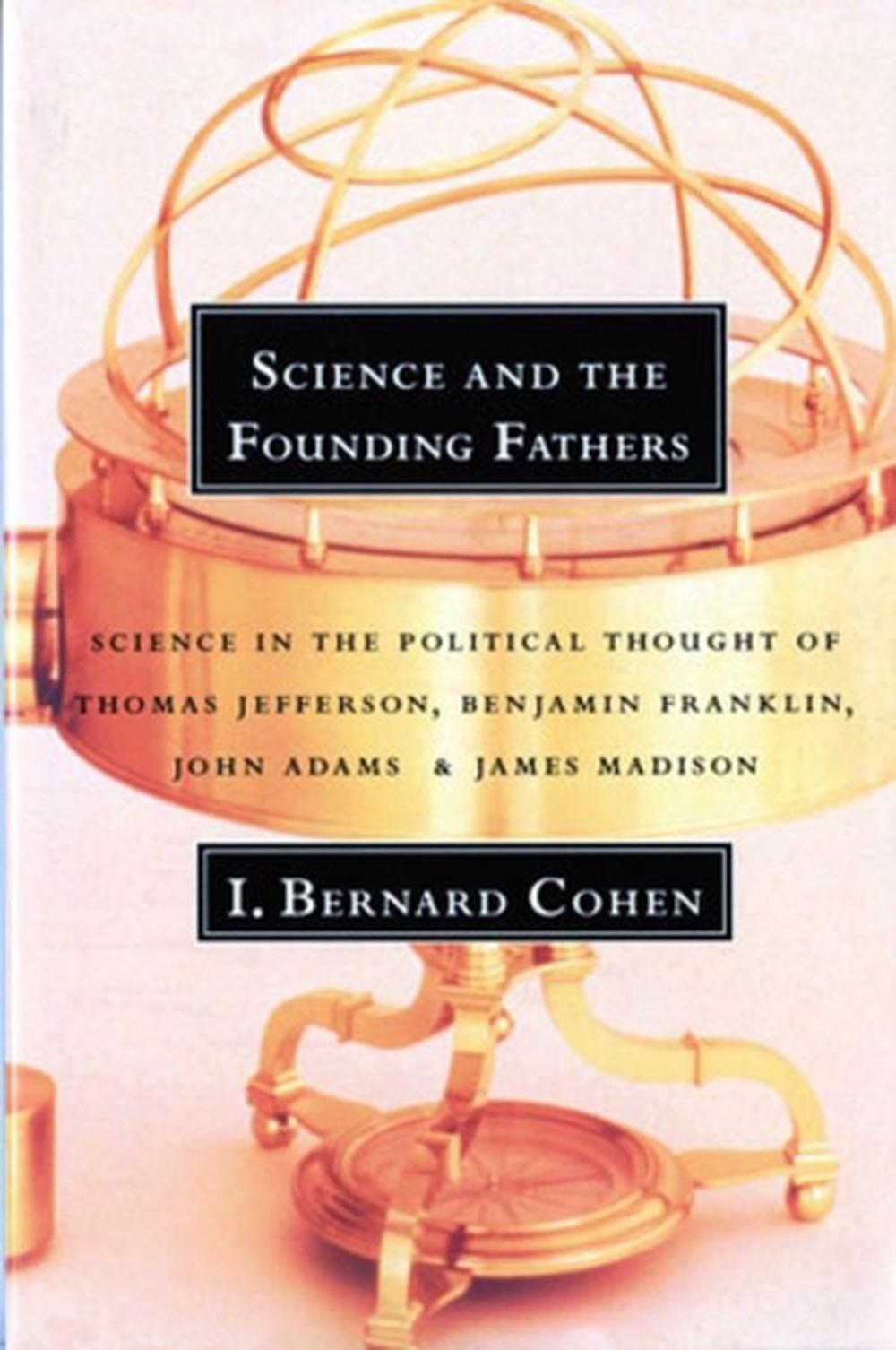
Science and the Founding Fathers
by I. Bernard Cohen
General readers, students of American history, and professional historians alike will profit from reading this engaging presentation of an aspect of American history conspicuously absent from the usual textbooks and popular presentations of the political thought of early America.
Paperback
English
Brand New
Publisher Description
Thomas Jefferson was the only president who could read and understand Newton's Principia. Benjamin Franklin is credited with establishing the science of electricity. John Adams had the finest education in science that the new country could provide, including "Pnewmaticks, Hydrostaticks, Mechanicks, Staticks, Opticks." James Madison, chief architect of the Constitution, peppered his Federalist Papers with references to physics, chemistry, and the life sciences. For these men science was an integral part of life-including political life. This is the story of their scientific education and of how they employed that knowledge in shaping the political issues of the day, incorporating scientific reasoning into the Constitution.
Author Biography
I. Bernard Cohen (1914—2003) was Victor S. Thomas Professor, Emeritus, of the History of Science at Harvard University, where he taught from 1942 to 1984. He was the first American to receive the degree of Ph.D. in the History of Science. He was the author of many books, including Science and the Founding Fathers: Science in the Political Thought of Thomas Jefferson, Benjamin Franklin, John Adams, and James Madison; The Science of Benjamin Franklin; Revolution in Science; The Newtonian Revolution; The Birth of a New Physics; and, with Anne Whitman, Isaac Newtonís Principia: A New Translation of Newtonís Mathematical Principles of Natural Philosophy. He edited several series of works, including Harvard Monographs in the History of Science, Three Centuries of Science in America, and the ongoing Studies & Texts in the History of Computing. He was a Fellow of the American Academy of Arts and Sciences, the American Association for the Advancement of Science, the Royal Astronomical Society, the British Academy, and the Accademia Nazionale dei Lincei.
Review
"Intellectually engaging…deftly written." -- Boston Globe
"Cohen's eye-opening, elegant study shows that America's Founding Fathers were true citizens of the Age of Reason who sought links between scientific principles and constitutional government." -- Publishers Weekly
"A fascinating study…the founding fathers appear in an interesting new light, thanks to Cohen's fresh, not to say iconoclastic, vision." -- Kirkus Reviews
Kirkus US Review
A fascinating study of how Thomas Jefferson, Benjamin Franklin, John Adams, and James Madison applied science to their political thinking. In terms of scientific competence, Cohen (History of Science/Harvard Univ.) finds much to praise in Jefferson and Franklin. Jefferson the polymath persuaded George Washington to adopt his method of apportioning members to the House of Representatives rather than one proposed by Alexander Hamilton. The Declaration of Independence pays homage to Isaac Newton with its "self-evident truths" (i.e., axioms) and its opening lines concerning the "Laws of Nature and Nature's God." Franklin's contributions to the field of electricity go well beyond flying a kite in a thunderstorm, Cohen shows. The French idolized him as a scientist and a self-made man, making him extraordinarily effective in ensuring French aid in 1776. Franklin also anticipated Malthus with statements about population growth in relation to sustenance, and he provided powerful demographic arguments as to why England should annex Canada after the French and Indian War. Adams, while well taught and an aficionado of science, got his physics wrong; he thought he was referencing Newton's laws of motion in speaking of the "balance of powers" or "checks and balances" in the Constitution, but the correct analogy is to laws of statics and equilibrium. Still, he foresaw a future for America in which his sons should master mathematics and practical sciences so that their children in turn could study painting, poetry, and music. In brief comments on The Federalist, Cohen notes that Madison's science metaphors were largely medical - a "nerveless empire," an "ailing government," etc. At times the text is repetitious; at times, Cohen wields a heavy hand in attacking earlier commentators (including Woodrow Wilson). Nevertheless, the founding fathers appear in an interesting new light, thanks to Cohen's fresh, not to say iconoclastic, vision. (Kirkus Reviews)
Review Text
"Intellectually engaging . . . deftly written."
Review Quote
"The founding fathers appear in an interesting new light, thanks to Cohen's fresh, not to say iconoclastic, vision."
Details

